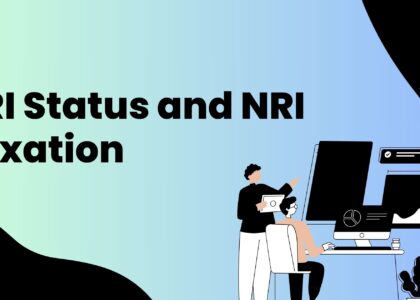Dear Readers,
I hope you’re doing well.
A recent Chennai ITAT ruling has important implications for those claiming non-resident status in India. The Tribunal held that FRRO records and visa types are valid for determining residency, and in this case, the assessee was treated as a resident under Section 6(1) due to spending over 182 days in India—despite holding a UAE Tax Residency Certificate.
The ITAT emphasized that travel for social purposes and managing affairs from India can bring global income under Indian tax laws. It is imperative that individuals looking to maintain Non Resident status should track days of stay, review residency status, and align tax reporting globally accordingly.
Warm regards,
Samir Mahajan
ITAT: FRRO Records, Visa Type Confirm Indian Residency; Global Income Taxable in India Despite UAE TRC and Business Visit Claims
Chennai ITAT: FRRO Records & Visa Details Establish Indian Residency; Global Income Taxable in India
Assessee’s claim of UAE tax residency rejected; ITAT upholds taxation of ₹1.95 Cr global income in India
[TS-717-ITAT-2025(CHNY)]
In a significant ruling on tax residency and global income taxation, the Chennai Bench of the Income Tax Appellate Tribunal (ITAT) has upheld the Revenue’s stand that the assessee qualifies as a resident under Section 6(1) of the Income-tax Act, 1961, based on FRRO data and visa details, thereby bringing his global income of ₹1.95 crore within the Indian tax net.
Key Findings by the Tribunal:
- Residency Established via FRRO Records:
The ITAT concurred with the Assessing Officer’s (AO) findings that the assessee had resided in India for more than 182 days, making him a resident under Section 6(1)(a) of the Act. It emphasized the reliability of FRRO (Foreigners Regional Registration Office) data, observing that it is a statutory agency entrusted with real-time entry-exit records of Indian citizens and foreigners, and hence cannot be doubted or disregarded. - Control and Management in India:
The Tribunal observed that the assessee had demonstrated that the control and management of his personal and financial affairs was situated in Chennai, India. The Tribunal remarked that the assessee also falls within the ambit of Sections 6(1)(c), 6(4), and Explanation 1 to Section 6, making his global income taxable in India.
- Visas Indicate Social, Not Business, Travel:
Rejecting the assessee’s claim that he was visiting India for business purposes, the ITAT noted that the visas granted were not exclusively for business, but included social visits as well. Therefore, the exemption under Section 6(1)(c) could not be invoked.
- UAE Tax Residency Certificate Not Conclusive:
The assessee had produced a Tax Residency Certificate (TRC) from the UAE, arguing that he should be treated as a UAE resident and thus protected under Article 4 of the India-UAE Double Taxation Avoidance Agreement (DTAA). However, the ITAT clarified that since the assessee qualified as a resident under Indian domestic law, the DTAA benefit under Article 4 was not applicable in this case.
- DTAA Override Not Permissible Where Domestic Law Establishes Residency:
The Tribunal ruled that the domestic provisions of Section 6 override any DTAA benefit where residency is established independently. It stressed that merely holding a TRC does not nullify the applicability of Indian tax laws when the individual meets the residency criteria under Indian statutes.
- Addition of Global Income Justified:
Accordingly, the ITAT set aside the order of the Commissioner of Income Tax (Appeals) [CIT(A)] which had previously treated the assessee as a non-resident and deleted the ₹1.95 crore addition. The Tribunal directed the Revenue to verify foreign tax payment documents and grant appropriate foreign tax credit (FTC) as per law.
Insight:
This ruling serves as a cautionary precedent for individuals claiming non-resident status while spending considerable time in India. Mere possession of a foreign tax residency certificate, such as from the UAE, does not automatically override the residency determination under Indian tax law. The Income Tax Department may rely on reliable government data sources like FRRO records and visa classifications to establish physical presence and control. Therefore, NRIs and expatriates must carefully track their days of stay in India, the nature of their visas, and the location of their economic interests to avoid unintended tax consequences. Proactive planning, documentation, and periodic residency evaluations are essential to mitigate the risk of global income being taxed in India.





